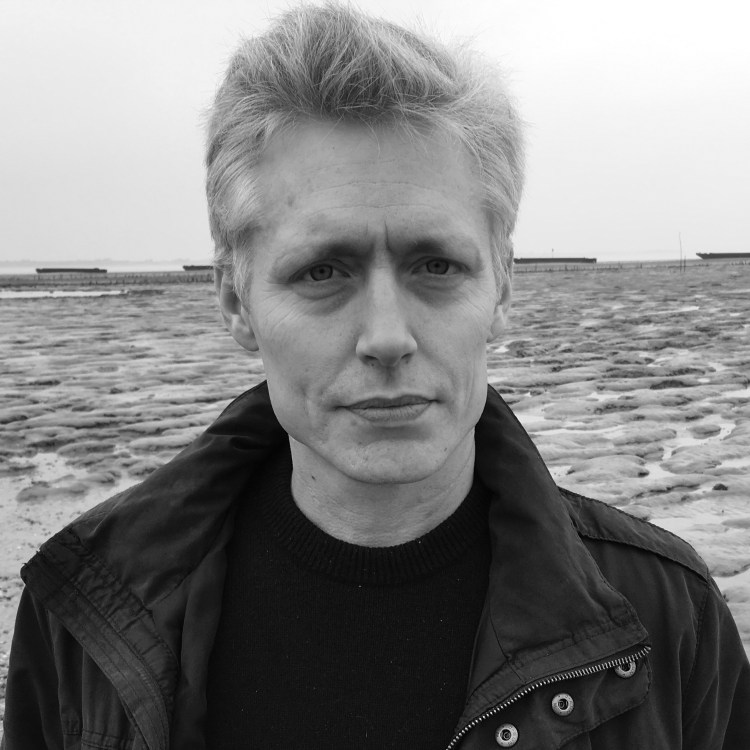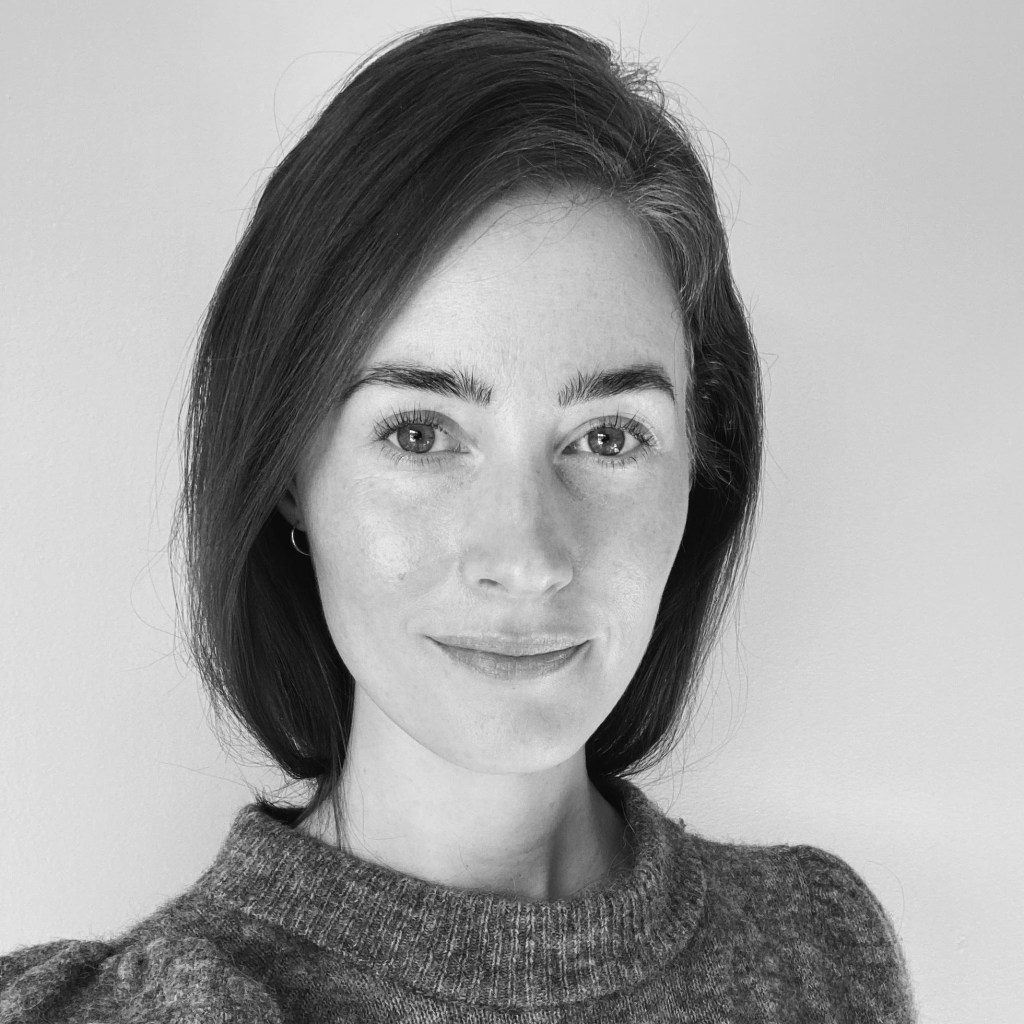EPOC is a transdisciplinary research project that explores how future imaginaries are changing in the aftermath of the pandemic. Collaborating with societal partners and stakeholders, the research group explores the new fantasmatic orders that emerge and shape global environmental politics and governance in the post-coronavirus world.
EPOC is funded by the Swedish Research Council for Sustainable Development (FORMAS).
Background: Gamma(γ)#93, Paul Blenkhorn
@SensoryArtHouse from Unsplash
“Apart from the association of green with lush plant life and the environment more generally, Blenkhorn’s painting, when viewed against the backdrop of EPOC, conveys a simultaneous sense of foreboding (the darkness of the black shadows) and ‘realistic’ potentiality (admittedly far fewer specs of blue). The bloody-red splodge is a bit unexpected, maybe slightly scary, but still rather ambiguous in its relation to animal life, human life, humanity, desperation, reactionary lashings out? There is a sense of a past order (read: linearity, probabilistic predictability, risk management etc.) overrun by Gaia’s angry brushstrokes (read: non-linearity, uncertainty, etc.). Also: are we right side up or up side down? A sense of being at the edge of chaos but not knowing which direction we are going in… Perhaps the haunting darkness of the black represents a threat to life’s biodiversity: the vertical lengthwise green line strokes convey the sense of a forest or jungle under threat, increasing the risk of emergent zoonotic diseases – are the vertical lengthwise black splodges not also reminiscent of hanging bats?”
Project Summary
The COVID-19 pandemic is not only a global health crisis. It is expected to lead to lasting changes in various policy areas – including health, mobility, trade, industry, finance, and sustainability. We are in a formative moment which we call the Coronavirus Crisis (CVC). Like any moment of shock and dislocation in history, the Coronavirus Crisis does and will make deep structural changes possible. This research project explores how global environmental governance is influenced by the Coronavirus Crisis and how it will be reimagined and rearranged in its aftermath. We focus on the High-Level Political Forum on Sustainable Development of the UN (HLPF) and its efforts to implement the Sustainable Development Goals (SDGs) with special attention to the SDGs effect on the environment. During the EPOC project we map the changes in the practices, discourses, and imaginaries of global environmental governance following the Coronavirus Crisis. The chosen project approach is transdisciplinary, where key stakeholders are co-producers of the research. Not only do they provide input on priorities and conceptions, but also participate in writing policy recommendations. Together, we investigate the new priorities, synergies, and trade-offs in ecological sustainability; how recovery, improvement, and social transformation is (re)imagined; and what the ultimate future environmental goals should be in a post-Coronavirus Crisis global society.
Research Questions
RQ 1) How do global institutions of environmental governance respond to the Coronavirus Crisis in its immediate aftermath? In what ways does the Coronavirus Crisis change decision-making practices, policy implementation, and governance architecture in the HLPF and the UN system?
RQ 2) After the Coronavirus Crisis, how are synergies and trade-offs between different policy objectives and societal values, discussed, contested, and negotiated in global policy fora, including the HLPF and the climate and biodiversity COPs?
RQ 3) How does the Coronavirus Crisis influence future pathways of SDG implementation and the HLPF’s decision making processes? How are recovery, improvement, social transformation imagined and what are the ultimate future goals for a post-Coronavirus Crisis global society?
Work Packages
Module 1: Getting Started (Summer 2021)
led by Ayşem Mert, assisted by Julia Feine
- Project Launch
- Research Creation Workshops
Research creation workshops ensured ongoing dialogue and information flow between researchers and key stakeholders, who co-produced parts of this research. Key stakeholders to the HLPF and the SDGs were invited to provide their input through reflection sessions and focus groups. In those reflection sessions, stakeholders assisted researchers to generate and interpret themes, identify priorities and turning points, and reflected on what they can teach us. In true transdisciplinary fashion, the project discussed the best way of posing its research questions and report its findings. The workshops were held in New York (2021) and Stockholm (2022) with virtual components.
Module 2: Mapping (2021 – 2022)
led by Elise Remling, assisted by Ayşem Mert & Jelle Behagel
Module 2 focused on RQ1 and maped the changes taking place in the UN’s environmental and sustainability governance architecture (HLPF and institutions related to the SDGs) as a result of the Coronavirus Crisis. In our final report we will list the changes in
- Behaviour/Practices (new ways in which daily operations are conducted e.g. via digital means).
- Processes/Institutions (new decision-making processes becoming legitimate, e.g. regarding quorum or civil society participation).
- Narratives/Policies (new ways of referring to sustainability, e.g. the post-COVID programs of UN system organizations, new descriptions of the SDGs).
For each category, we also map what has been phased out. The resulting map will show the dynamics of change in terms of what is new and what is obsolete, through what narratives these changes are justified, the competing practices and contestations.
Module 3: Negotiating (2022 – 2023)
led by Jelle Behagel, assisted by Ayşem Mert & Elise Remling
This module focuses on RQ2 and concerns the synergies and conflicts between policy objectives and societal values that are re-articulated following the Coronavirus Crisis. Through interviews and focus groups we explore how debate, contestation, and negotiation of objectives and values take shape. As a baseline for identifying these objectives and values, we use the following indicators for the three dimensions of sustainability:
- Environmental (SDG 6, 7, 12, 13, 14, 15): Based on environmental output/outcome/impact of the new practice for each SDG target.
- Social (SDG 4, 5, 8, 9, 10, 11, 16, 17): Based on the quality of democratic inclusion the new practice targets (inclusive decision-making, strong, democratic institutions, international and multi-stakeholder cooperation).
- Economic (SDG 1, 2, 8, 9, 10, 12): Based on the quality of economic relief the practice targets (in terms of poverty reduction, protection of the most vulnerable, full and productive employment, decent work for all).
Transformations towards sustainability are always multiple, contested, imbued with politics and power, competing values and ideas. In studying how sustainability and in particular environmental governance is transformed by the Coronavirus Crisis, we involve both UN officials and major stakeholder groups recognized by the UN to co-produce this assessment. This will help make policy recommendations to UN institutions and governments concerned with sustainability and environmental conservation.
Module 4: Future-making (2023 – 2024)
led by Jason Glynos, assisted by Ayşem Mert
This module is related to RQ3 and analyses how the Coronavirus Crisis influences the way SDG implementation and the HLPF’s decision-making processes are imagined. During and in the aftermath of the crisis, institutions will rearticulate their missions for a post-Coronavirus Crisis world. UN officials, delegates, and civil society will describe the policies they prioritize and the post-Coronavirus Crisis future they desire, by sketching out ideal images of the future as well as dystopian futures to be avoided. These articulations specify what is to be feared, what is to be desired, and what kind of institutional and societal change is needed to achieve this. This module analyses data gathered in all other modules using content and metaphor analyses. We emphasise three dimensions of these future imaginaries:
- Horrific: depressive/paranoid/dystopian futures, feelings of loss, anxiety, and fear.
- Transformative: recovery and improvement in social, economic, and environmental aspects of sustainability, impediments to these.
- Beatific: idealised/utopian futures, the ultimate future goals of a post-Coronavirus Crisis global society.
By tracing what is desired and what is feared we reveal the changes in the imaginaries of (i) environmental conservation and sustainability, (ii) democratic, inclusive, collaborative governance, and (iii) economic equity and sustainability.
Module 5: Finalising & Synthesis (Autumn 2024 – Spring 2025)
led by Ayşem Mert
- Writing and submitting of final report.
The Project Team
Societal Participants Assembly (SPA)
Core Members
- Dr. Eleni Dellas (t.b.a.)
- Mr. Emiliano Farinella (European Centre for Disease Prevention and Control)
- Mr. Jan-Gustav Strandenaes (Stakeholder Forum for a Sustainable Future)
- Dr. Sander Chan (Global Center on Adaptation)
Scientific Advisory Board (SAB)
- Prof. Karin Bäckstrand (Dept of Political Science, SU)
- Prof. Sverker Sörlin (Division of History of Science, Technology, and Environment, KTH)
- Dr. Eva Lövbrand (Department of Thematic Studies/Environmental Change, LIU)
Acknowledgment of Funding
This project is funded by Formas the Swedish government research council for sustainable development.
Want to know more?
Contact us at: epoc@statsvet.su.se









